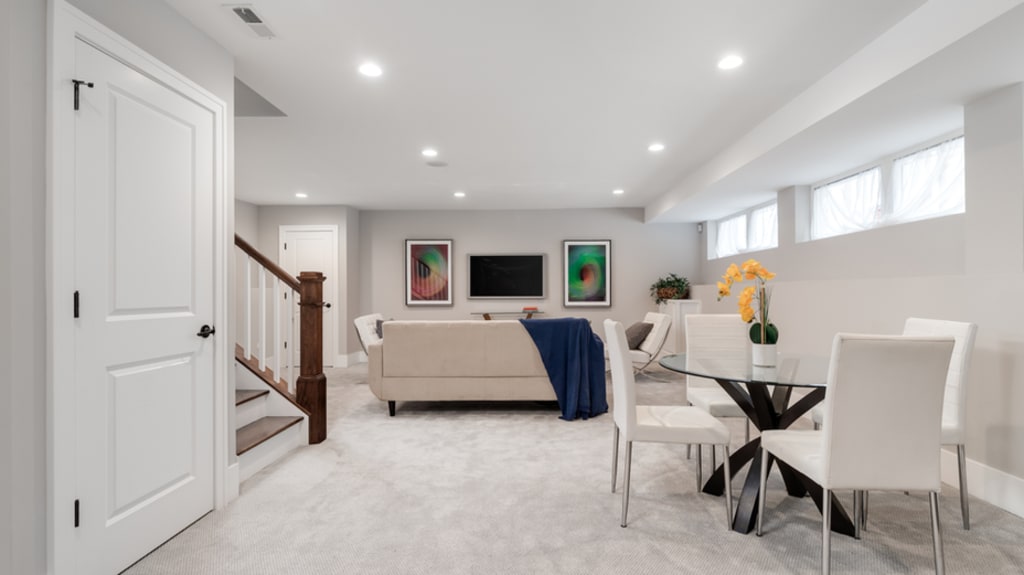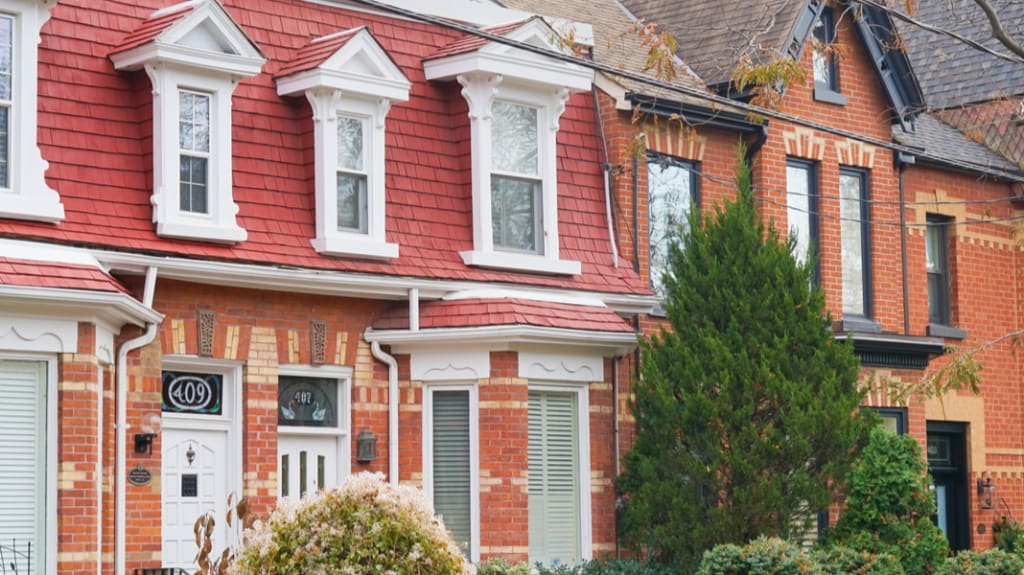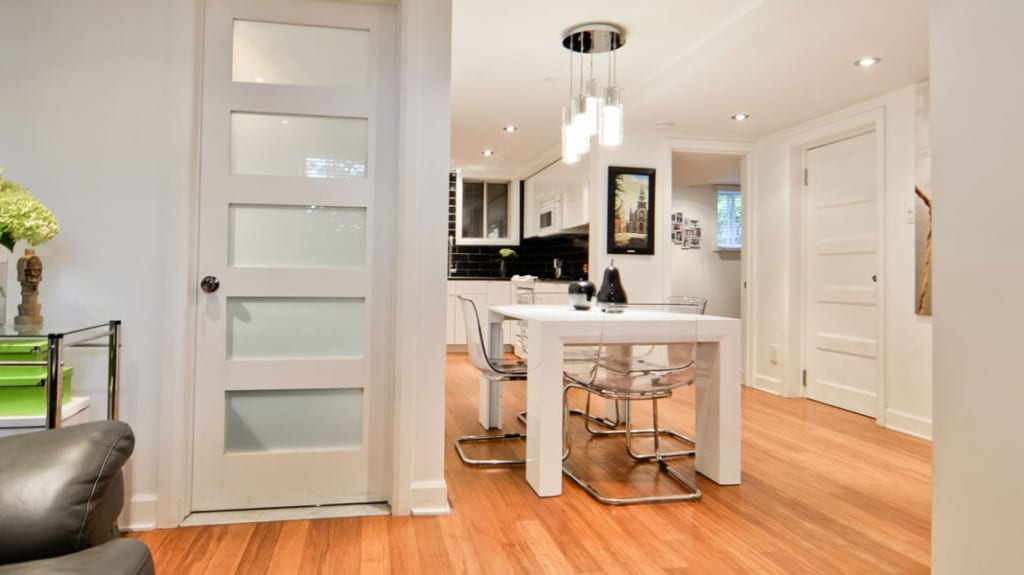While the real estate market is cooling off, rental prices remain sky high. The low supply and high demand for affordable and suitable housing has created a need in some of the largest cities in Canada. Pair this with rising mortgage rates, and the result is clear: Homeowners in and around Toronto and Montreal are looking into building a legal basement apartment to cushion their income.
However, before we dive into the pros and cons of renting out your basement, we should first look at what constitutes a legal basement apartment in both Ontario and Quebec.
What makes a basement apartment legal in Ontario?
In Ontario, a legal basement apartment is a secondary unit that meets Ontario Building Code requirements. Basically, if your property meets the zoning codes for your area, and your building is over five years old, your second unit needs the following:
At least 145 square feet of space
At least 1.95 meters of ceiling height
A second means of escape
At least 30 minutes of fire separation between itself and the main unit
Heating, cooling, and electrical that has been approved by an Electrical Safety Authority electrician
Hot/cold water, a sink, kitchen sink, and access to laundry
Windows that are at least 5% of the living floor area and 2.5% of the bedroom floor area
What makes a basement apartment legal in Quebec?
On the other side of the Ottawa river, a basement apartment in Quebec has specific regulations based on the apartment’s location. From a provincial standpoint, the most pressing concern is the location and availability of an egress window as a second means to escape. An egress window must be large enough for both a child and adult to climb through and open freely with no anti-intrusion bars.
As you can see, the legalities around basement apartments are pretty specific, and to be a legal second dwelling within the home, the above requirements are the minimum. Further to that, the exact specifications and things you need will depend on where the property is located.
What codes need to be met before renting your basement?

When considering what codes need to be met, you need to remember that you will be dealing with multiple codes at various levels.
Ontario
If you are in Ontario, your building will need to be up to Ontario Building Code standards. If your building is a little older, it’s best to hire a property inspector or general contractor. They can tell you if you need to complete any updates to the space before considering a basement apartment.
Next, your building will need to meet Fire Code standards to ensure the basement is safe to exit in an emergency. The fire department can complete this inspection, but even if you get their okay, your basement apartment isn’t legal just yet. Finally, you will need to meet the specific by-laws that are in place in your municipality. For example, Toronto, Mississauga, Brampton, Milton, Burlington, and Hamilton have specific by-laws and processes around basement apartments.
Quebec
Much like Ontario, the rules in Quebec depend on the location of your basement apartment. All buildings in the province, including legal basements, need to meet the Régie du bâtiment du Québec’s standards. Then, most municipalities will have specific rules and regulations around basement apartments. For instance, Montreal has particular rules regarding the configuration, ventilation, lighting, appliances, exits, and other specifics for second dwellings.
What are the costs of a legal basement?
Naturally, the costs of a legal basement will vary depending on the area you live in and the condition and layout of the basement in question. However, let’s take an unfinished basement as a benchmark and look at basement renovation costs. We calculate on average for an area of 900 ft2 (i.e. a standard house of 30x30ft or 25x35ft) that a turnkey basement without a bathroom starts at $45,000 in Montreal and $70,000 in Toronto. Keep in mind that this reflects the cost of finishing a basement, not creating a second dwelling.
Considering that a second dwelling requires a full bathroom, kitchen, an independent entrance and other amenities, as well as bringing everything up to applicable building and fire codes, the costs can skyrocket. According to Debora Tricarico, one of our Renovation Advisors, a complete transition from an unfinished basement to a legal basement apartment normally starts at $85,000 + tx based on a model of 900 ft2.
Costs will vary depending on your current set-up, quotes for the work in your area, and the amount of structural work needed to complete the job. Thus, it is always best to talk to a trusted professional contractor or basement specialist who can walk you through the process and work with you to design a space that is not only legal but will also attract top-tier renters.
How to rent out a legal basement

The process of renting out a legal basement can be overwhelming for first-time landlords. Not to worry, though: we’ve broken it down into easily digestible steps!
Check to see if your basement apartment meets all necessary codes and by-laws. Ensure that it is in good, clean condition with all the required appliances as well as smoke and carbon dioxide detectors.
Take professional photos. If you do not have a quality camera, hire a real estate photographer for a couple of hours to light, capture, and edit your images to showcase your space.
List the apartment with any updates you have made and a detailed description of the amenities, space, and perks.
Set a fair market price. Make sure to do your research and see what similar units are renting for around you. Depending on your area, it might be hard to adjust rent later on without finding new tenants
Interview your tenants. You can also ask for credit checks, references, and proof of income if you would like. A good rule of thumb is to be picky about your tenants, as good tenants will make your life easier.
What are the pros and cons of a legal basement?
Pros
Second source of income. Naturally, turning part of your existing home into a secondary source of income is one of the big reasons people do all the work. It can help you pay down your mortgage, pay off debt, or save more for the future.
Increased property value. Second dwelling renovations are a proven way to increase your property value. Families in Toronto and Montreal are always looking for second dwellings to turn into nanny suites, in-law suites, or rental units.
Cons
Less privacy. One of the most significant drawbacks of a basement apartment is that you will have less privacy as a homeowner. First and foremost, by renting out part of your home, you will essentially be living with a stranger in your own home. Plus, if noise cancellation is not great in your home, you could be hearing them at all hours of the night.
Cost of setting up the space. Basement apartments are not cheap. Transitioning an average unfinished basement to a legal living space can cost you as much as $100,000 (or more). This is a large investment, and it will take years to recoup the costs through the rental.
Being a landlord is not easy. As soon as you rent your space, you become a landlord. This title comes with all the stress and responsibility that you imagine. If something breaks, you need to fix it; if something needs to be repainted, you need to paint it. Further, you’ll need to deal with tenants who could cause issues, be loud, or cause significant property damage in rare cases. You get the point. For some, it’s not worth the stress and headaches.
Taxes. When renting out a second unit, you’ll need to pay rental income tax to the provincial government. Many first-time landlords are not aware of this when they start the process, and things get complicated quickly. There are various ways to lower your tax burden, and it’s best to chat with a chartered accountant who is familiar with the various exemptions and ways to reduce the tax on your rental income.
Ready to renovate your basement?
The laws and by-laws around basement apartments are pretty complex but your basement renovation project doesn’t have to be. Our Renovation Advisors can guide you through the process and get you quotes from up to 3 Verified Contractors in your local area. Still in the brainstorming phase? Get inspired by our past basement renovation projects, this year’s basement design trends, and some fun and functional basement ideas.




